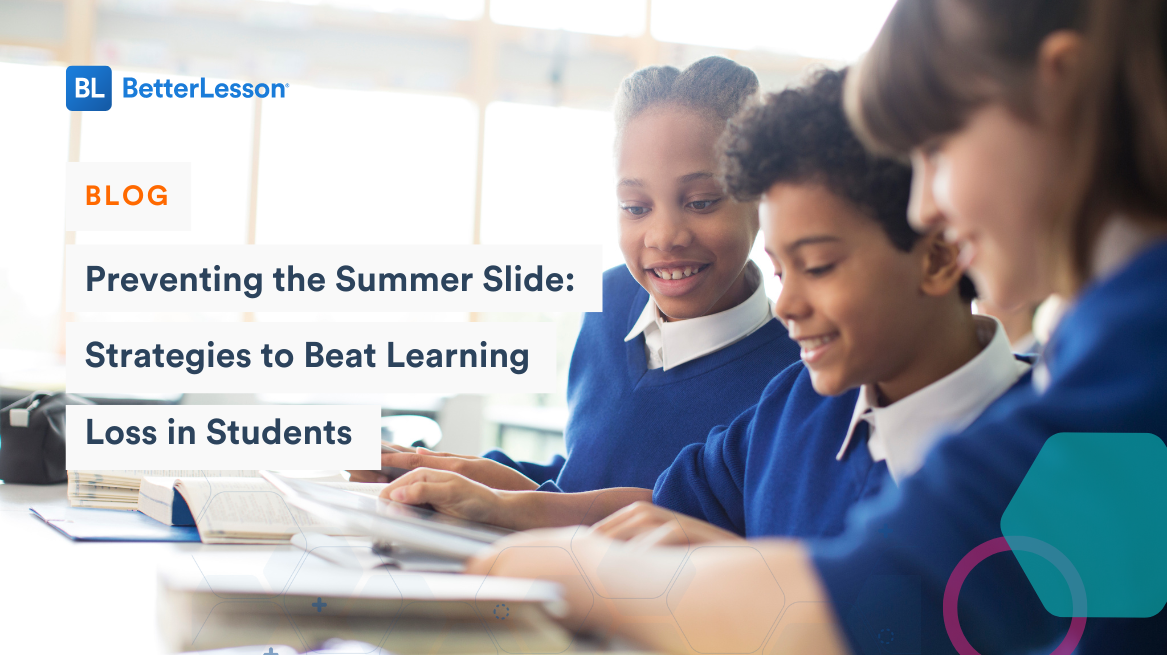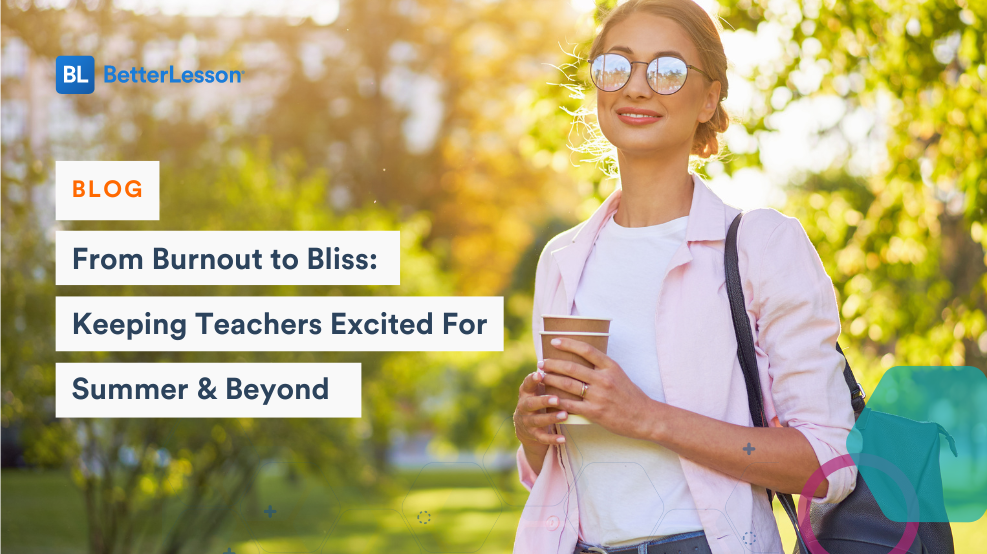For most students and teachers, summer means–no school! This time offers a well-earned break from the demands of school. Of course, students and teachers alike should use this time to recharge, reconnect, and relax, as much as circumstances allow.
However, one concern that often sits in the back of many school leaders’ and educators’ minds is summer slide, or the loss of academic progress made throughout the school year. With this concern, though, can come an important lesson: school isn’t the only place where learning happens.
Although recent research complicates our understanding of the extent to which summer learning loss truly impacts academic progress, one belief remains true: continued student learning throughout the summer is a positive thing. The freedom and flexibility of summer allows time and space for students to explore their natural curiosities and develop new skills and sets of knowledge that they can bring into the classroom the following school year. The question then becomes, how can schools promote continued learning and curiosity for their students throughout the summer?
Here are some suggestions for teachers and school leaders to support student learning throughout summer break:
Encouraging and Fostering a Love for Reading
One great way to encourage student learning during summer is to promote reading. There are many ways to support student summer reading, but here are a few ideas to consider:
- Connect students with local libraries: The local library is a great place for students to start. Not only does this provide access to books, but to resources like internet access and community programming. Teachers could walk students through the process of obtaining a library card and explain all of the resources that libraries offer. Your school might even consider inviting local librarians to talk with students. Many libraries organize summer reading programs, which can provide students with a structure to support reading all summer.
- Expand what “counts” as reading: Oftentimes, students—especially students who don’t identify as readers—associate reading with the experience of reading in school. And of course, not every student is going to be engaged with the required reading in their classes. It’s important, then, to encourage your students to expand what is considered reading: comics, graphic novels, fan-fiction, blogs, and more. All of these mediums are valid forms of reading, and if they are engaging to your students, they should feel supported in making those reading selections.
- Support students in identifying a reading list: There is such an incredibly wide world of reading, and books exist that can align with any student’s interests. Be explicit about supporting your students, especially your reluctant readers, in identifying genres and authors that might interest them. If students have a clear idea of what specific books could be engaging or exciting, they’re more likely to take the initiative over the summer to read those books.
- Support independent reading throughout the school year: If throughout the school year, the only reading in which students participate is required novels and textbooks, their skills around developing personal reading habits are limited. Then, throughout summer, those students will be less likely to read because they’re less likely to be familiar with their reading preferences and styles. Instead, when schools prioritize independent choice reading throughout the school year, students develop habits of life-long readers that they can carry into the summer.
Student-Led Project-Based Learning
Many teachers struggle with how to navigate the last few weeks of the school year. When state and district testing are complete and you’ve reached the end of the curriculum, how do you continue to promote learning and engagement? One way to think about the last few weeks of the school year is to support students in engaging with project-based learning throughout the summer.
For example, as an end-of-year project, teachers can walk students through the process of creating their own project-based learning. This way, students are able to create a structure for learning that sparks their own passions and curiosities. When summer break begins, students will have a fully-planned project that they created and that they can engage with throughout summer.
Explore Educational Opportunities in the Community
While many students are thrilled to have a break from school over the summer, many students might also quickly experience boredom and loneliness.
One way schools can help combat this while simultaneously supporting learning is to create a comprehensive list of community and education institutions and programs. This might include local museums, libraries, art galleries, youth programming, and more. This list should provide as much information as possible, to eliminate any barriers and questions: descriptions of the institution/program, hours of operation, location and phone number, cost, and public transportation routes (if applicable).
Additionally, schools can reach out to some of these institutions that might cost money and ask about the possibility of partnering with the school to establish reduced rates or free passes for students throughout summer.
Create Community Scavenger Hunts
A unique way to support real-life learning during summer is to create a community scavenger hunt. This community scavenger hunt could include a list of sites, landmarks, and businesses in the students’ neighborhood. Students could also add their own locations to the scavenger hunt. For each location, students would follow a set of instructions to support learning and to deepen their community knowledge. These instructions might include the following:
For each location, complete the following tasks:
- Take a picture of the site
- Take notes on what you observe about this site
- Research any information you can find about this site (i.e. Who created it? When? For what purpose?)
- If applicable, interview someone associated with this site (i.e. business owner, park attendant, artist of a mural, etc.) to deepen your learning.
- Reflect on how this sites impacts the community and/or how it impacts you personally
Once your scavenger hunt and research is complete, you can turn your learning into a presentation of your choice. You can write an essay, develop a virtual presentation, create a scrapbook or poster board.
Encourage Journaling
Research shows that journaling has a wide range of benefits, improving mental and physical health, critical thinking skills, and memory. By encouraging students to journal throughout summer, schools are also encouraging the benefits that it offers.
To eliminate barriers to journaling, if possible, your school might buy notebooks for each student to use as a summer journal. Teachers might also might consider providing students with a list of journal prompts that students could reference during their summer journaling.
Share Virtual Learning Resources
Finally, there is a vast world of free online learning resources for students. Students can access these resources at home or through their local library and engage in activities that enrich their learning and curiosities. Additionally, many museums offer free virtual field trips and activities. All of these learning opportunities are a perfect way for students to engage in learning on their own time.
Ultimately, creating structures for learning throughout summer is about inspiring students to embrace learning as a lifelong pursuit. This can and should happen throughout the school year, too! Schools should be intentional about using curriculum and instructional strategies that encourage and cultivate students’ curiosities and lifelong learning habits.
Schedule a call with us today to learn more about how we can collaborate and support working toward this vision.
Get in Touch







